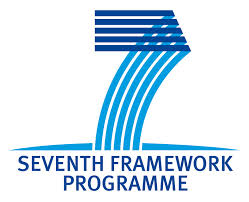PortEconomics members, joined by leading researchers and firms in Europe embark in a new major reasearch program aiming at improving the resource efficiency and competitiveness of the European Port System.
This is one of the flagship research projects financially supported by the European Commission, in an attempt to facilitate policy-making and, ultimately, the competitiveness of the port system in Europe
PORTOPIA aims at creating an integrated knowledge base and management system of port performance to serve the industry’s stakeholders in improving the sustainability and competitiveness of the European Port System. To that end, different domains will be linked such as market trends and structure, socio-economic performance, environment and safety, logistic chain and operational efficiency, governance and finance and user perceptions of quality. Inland ports will also be covered in the project. PORTOPIA aims to create an integrated and balanced view on port performance. Furthermore, performance will be linked to the industry’s and the European Commission’s policy objectives in diverse areas.
In total, 12 academic and industrial partners from 9 European countries will execute the project. This consortium includes PortEconomics members Thanos Pallis, Theo Notteboom, Peter de Langen, Michael Dooms, Francesco Parola, Larisa van der Lugt, Mary Brooks, George Vaggelas; with one among them, Micheal Dooms (Vrije Universiteit Brussel VUB), acting as the project coordinator.
PORTOPIA Kicks-Off
 Following a call for projects under the EU-FP7 research scheme, the PORTOPIA project has started this September. After 4 years, the project should result in the creation of a self-supporting and sustainable organisation at the service of the industry’s stakeholders.
Following a call for projects under the EU-FP7 research scheme, the PORTOPIA project has started this September. After 4 years, the project should result in the creation of a self-supporting and sustainable organisation at the service of the industry’s stakeholders.
An efficient and sustainable port system is an important facilitator and driver for economic growth. European ports account for 37% of intra-European trade volumes, and play a key role to link European markets and industries to global trade networks with a share of 90% of external trade. On top of that, each year, ca. 400 million passengers transit through European ports. Mr Dimitrios Theologitis (European Commission – Head of the ports policy and inland waterways unit): “In recent years we have witnessed an impressive transformation of the role of ports in the transport chain. Adaptation to multimodality, introduction of advanced ICT systems, impressive changes in the port-ship interface and cutting edge logistics requirements are putting more and more pressure in ports. The PORTOPIA project is meant to document this progress and shows the strong commitment of the EU in supporting innovation and word level class performance of a sector – ports – which is of key importance for the competitiveness of European businesses and the well-being of citizens”
The project, with a total budget of ca. 4,2 million euro, of which ca. 3 million euro is funded by the European Commission, is the largest European research project on ports since the start of the European Port Policy in 1996.
The European Seaports Organisation (ESPO) and its various committees will play a pivotal role within the consortium by ensuring a strong link towards port authorities and making sure that the objectives, needs and interests of the industry are integrated.
Ms. Isabelle Ryckbost (Secretary-General ESPO) comments:
“PORTOPIA will allow ports to look in the mirror and see how they perform compared to meaningful averages and best practices. This can be the first step to improve performance or to convince the board of certain decisions to be made. But it can also be a tool to demonstrate to the broader port community how well one’s port is functioning. It is of paramount importance that the results of this project fit the needs of the ports industry. Moreover, when participating, ports must be able to count on a certain confidentiality. There is no harm in showing the global picture of European ports when it comes to their performance on the environmental and socio-economic dimension. The inputs and outputs of each individual port should however only serve the given port and should not be open to others. Finally this project should alleviate the burden of filling in the same data for different purposes: ideally, it should result in a one-stop shop for port data. “
Furthermore, all important organisations representing stakeholders from the port logistics chain on the European level (such as terminal operators, shipping lines, tug and towage services, pilots, boatman, agents and forwarders, shippers,…) also have been associated to the project’s industrial steering committee. A Global Scientific Committee will ensure the link towards global performance of the industry.
According to Prof. dr. Michaël Dooms (VUB, project coordinator):
“The development of an industry performance measurement tool is a sensitive topic in the port stakeholder community. A very close collaboration with industry and policy stakeholders will be a critical success factor to achieve sustainable project outputs. The PORTOPIA knowledge platform should strengthen the long-term relationships between stakeholders. The resulting exchange of data and best practices can substantially increase the port industry’s position as a driving force of sustainable economic growth in the European Union“.
PortEconomics will regularly update its readers on the progress and the output of PORTOPIA. Stay tuned !!












